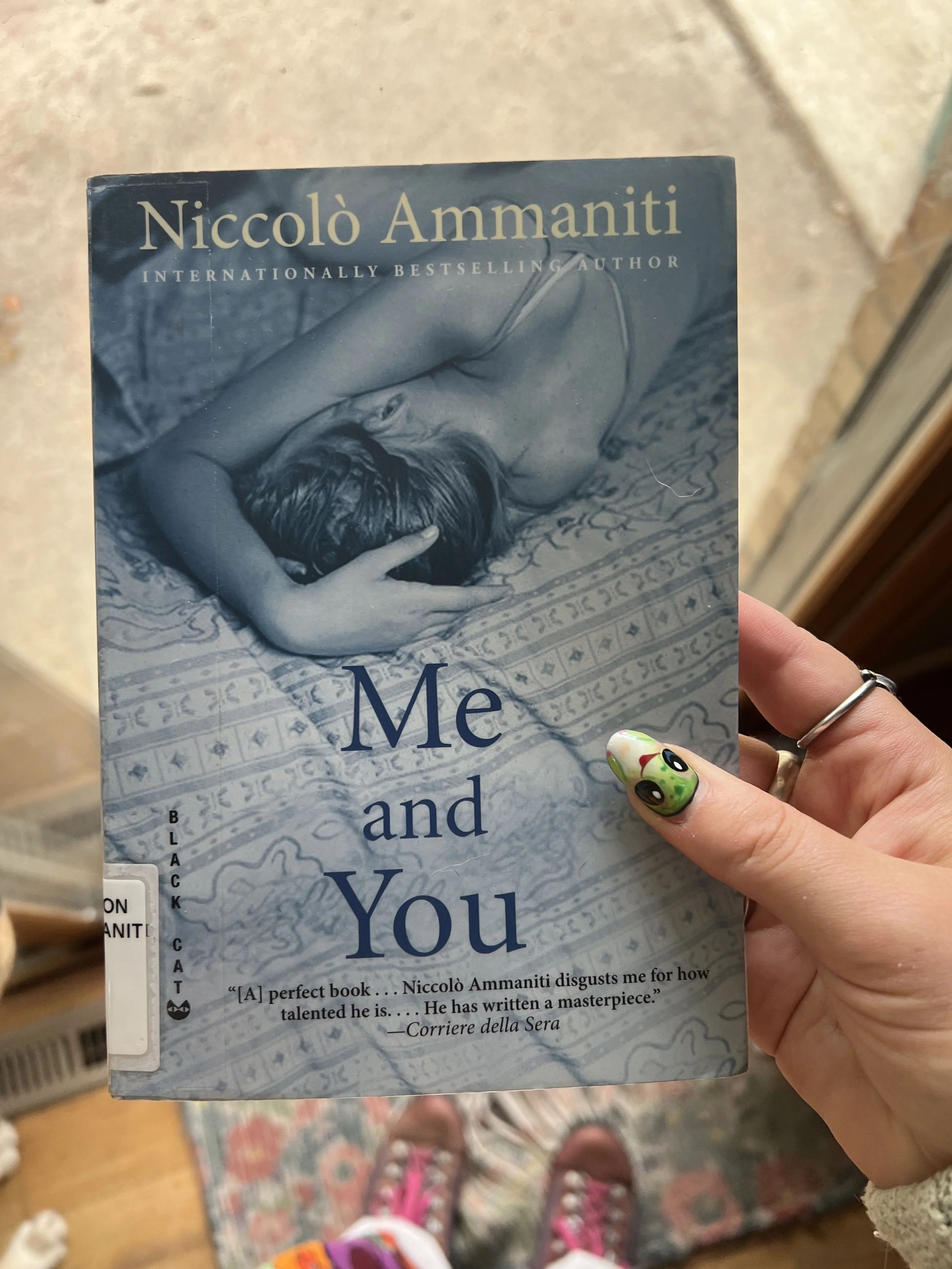Book Review: Me and You by Niccoló Ammaniti
Impression
This book left a strange taste in my mouth. The uniqueness of this text felt like the framing of it (the beginning and end chapters are separate from the rest of the story - providing a container for the experience that is shared)… but in that way, the frame itself felt like it colored the picture.
I did like the observational style of writing - characteristic of other young-adult neurodivergent narrators (think, curious incident of the dog in the nighttime, but less whimsical and fantastical). It was a “different” perspective, but not a terribly original one. It feels like a way that neurodivergence becomes a device through which to examine the world. One that is frequently negotiated through the otherness of a young, white boy who displays many autistic-coded traits.
I found it thought-provoking, but mostly in a way of disagreeing with or feeling the desire to challenge the choices the author made in telling the story. On one hand, I do like the illustration of intergenerational neurodivergence, addiction, and family patterns. On the other hand… the narrator felt subtly creepy to me? And it was difficult for me to tell if those decisions were intentional by the author since they didn’t feel seamless within the character.
I did really enjoy the thematic returns to “Batesian mimicry” - which felt like excellent commentary on masking and learning from non-human sources how to survive within the margins.
Forget-Me-Nots
p. 1
“Batesian mimicry occurs when a harmless animal species takes advantage of its similarity to a toxic or poisonous species that inhabits the same territory, imitating its colouring and behaviour. In this way, the imitating species is associated in the predators’ minds with the dangerous one, increasing its chances of survival.”
p. 31
“I was like a sardine in a school of sardines. I camouflaged myself like a stick insect on dry branches. And I learned to control my anger. I imagined that I had a tank in my stomach, and when it filled up I emptied it out through my feet and the anger ended up in the ground and penetrated into the world’s guts and was burned up by the eternal flames.”
p. 127
“This is the ending. Two years later some scientists are on a beach on a tropical island, at night, in the light of the full moon. They’re hiding behind a dune with their binoculars and watching the shore. Suddenly the sea turtles come out of the water, they’re going to lay their eggs. The turtles climb over the sand, they dig a hole with their legs and they lay their eggs. And K19 comes out too. He’s all covered in seaweed and mussels. He climbs slowly up the beach and uses his caterpillar tracks to dig a deep hole, covers it over and then goes back into the sea with the turtles. The next night a whole heap of little turtles pop out of the sand. And from one of the holes lots of teeny-weeny K19s pop up, like little play tank engines, and they head towards the shore along with all the little turtles.”
(note: this is the ending to a story told by the narrator / main character of the story - not the end to the entire book)
Recommend to…
*lovers of YA-ish books that address complex themes (ex: addiction, neurodivergence, masking) in an indirect way
*someone who would like to have a literary conversation with their book club (the copy I had even had a book club guide in the back that had some thought-provoking questions)
I would describe this book as being (in my experience) intellectually stimulating but emotionally unfulfilling.
Ideal Setting
*At a used bookstore that has a cafe (I was picturing Trident in Boulder, CO) where you can sit and read it all in one sitting, drinking strong espresso and listening to the grad students exchange opinions and philosophical ramblings in the background
Rating
⭐️ ⭐️ ⭐️
Book #104 of 2024
